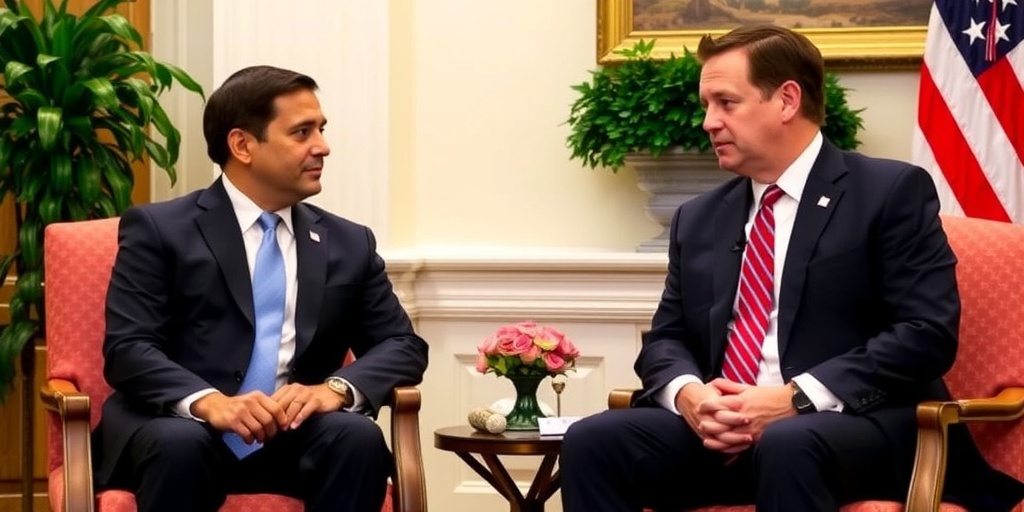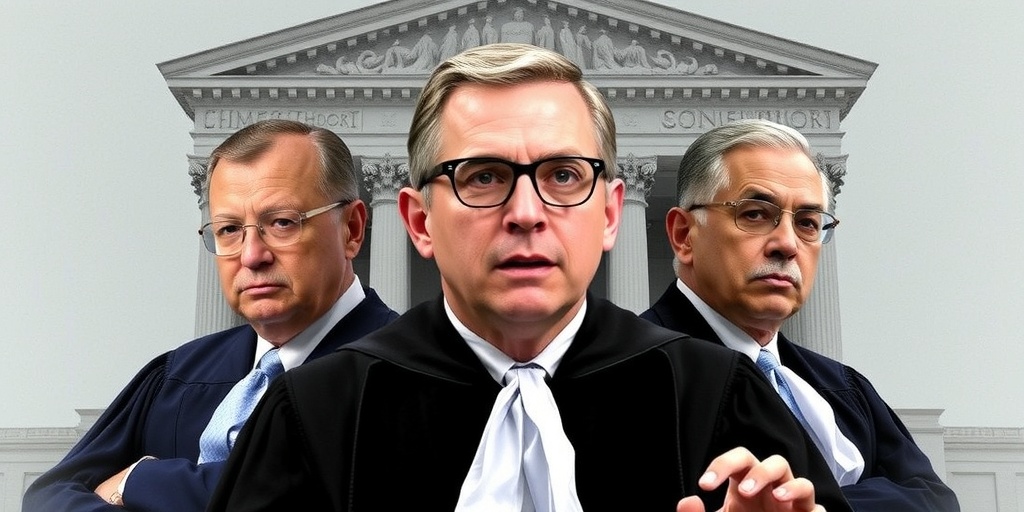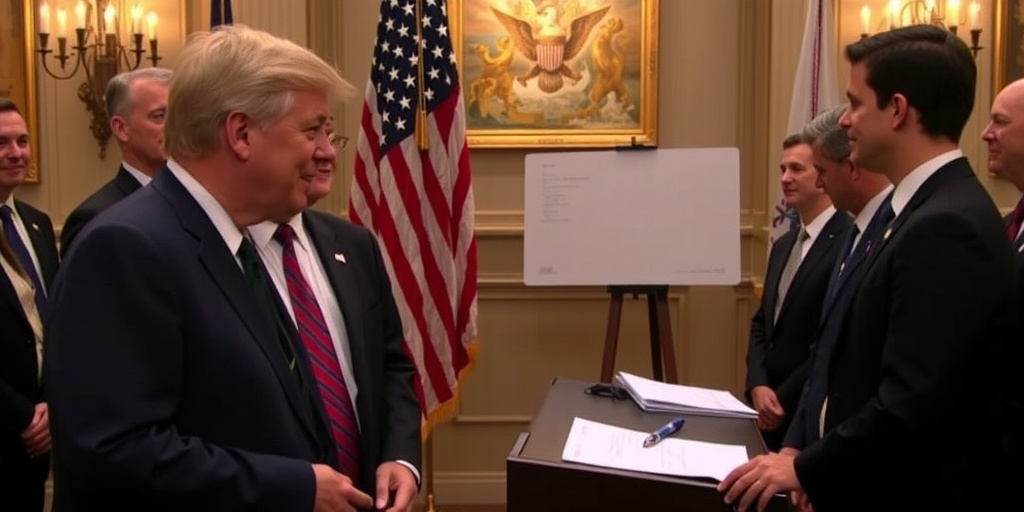Now Reading: RFK Jr. Threatens Food Industry with Pledge to Eliminate Artificial Dyes
-
01
RFK Jr. Threatens Food Industry with Pledge to Eliminate Artificial Dyes
RFK Jr. Threatens Food Industry with Pledge to Eliminate Artificial Dyes

In a significant first meeting with top executives from major corporations such as PepsiCo, W.K. Kellogg, and General Mills, Robert F. Kennedy Jr., the new Secretary of Health, stated that a key focus of his administration will be the removal of artificial dyes from the U.S. food supply. During the meeting held on Monday, Kennedy articulated that eliminating artificial colorings is an “urgent priority” for the Trump administration and a crucial component of his health agenda.
Kennedy’s insistence on transforming the food system is part of a broader effort to address increasing rates of chronic diseases and health concerns among the American population. He conveyed this message not only to the executives present but also emphasized that significant changes are on the horizon. According to insights shared by the Consumer Brands Association, a trade organization, Kennedy indicated his willingness to collaborate with the industry. However, he made it clear that if the food companies do not take proactive measures to eliminate harmful ingredients, he is prepared to take decisive regulatory action.
Melissa Hockstad, the president of the Consumer Brands Association, highlighted the urgency of Kennedy’s message in a subsequent letter to the executives. She noted that “decision time is imminent,” emphasizing the pressure facing the food industry to adapt to new regulations.
Later that same day, Kennedy issued a directive aimed at modifying a long-standing policy known as GRAS (Generally Recognized as Safe), which previously allowed food companies to determine independently whether new ingredients are safe without regulatory review. This policy, established decades ago, was intended for well-known benign ingredients like vinegar or salt. However, it has expanded to include a broader range of natural and synthetic additives. Kennedy’s directive indicates a shift towards greater scrutiny of food ingredients deemed safe by the companies themselves.
Before his appointment as Secretary of Health and Human Services, Kennedy had long expressed his intention to reform the food industry. Now overseeing the Food and Drug Administration (FDA), which regulates about 80% of the U.S. food supply, he aims to push for changes that could significantly impact how food safety is managed in the country.
Many food manufacturers rely on artificial dyes to enhance the visual appeal of products like breakfast cereals, candies, and beverages. While some companies have begun experimenting with natural alternatives—such as using carrot or blueberry juice for coloring, especially for products sold abroad—there has been considerable hesitation to implement these changes in the U.S. market due to consumer preferences for vibrant colors.
Steven Williams, CEO of PepsiCo’s North America division, was present at the meeting but declined to comment on the discussions. However, a spokesperson for PepsiCo characterized the meeting as a “productive first step” towards aligning with consumer preferences and providing more options featuring natural ingredients while reducing synthetic colors, sugars, fats, and sodium in their products.
In a statement, Stacy Flathau, the chief corporate affairs officer for W.K. Kellogg, expressed optimism about collaborating with the new administration. Nonetheless, while the industry memo reflected concern over Kennedy’s plans to ban synthetic colors, it did not specifically address his proposal to reassess certain food ingredients designated by companies as safe.
Food safety advocates have long criticized the existing GRAS policy as a loophole, allowing food manufacturers to introduce untested ingredients that might pose health risks. Approximately 1,000 ingredients have been reviewed by the FDA, but Kennedy is particularly focused on those deemed acceptable without government oversight.
“Eliminating this loophole will provide transparency for consumers and contribute to restoring the integrity of our food supply. Ultimately, we aim to Make America Healthy Again,” Kennedy stated in a press release.
Following California’s ban on Red Dye No. 3, similar legislative efforts have gained momentum across several states, with others targeting titanium dioxide—a compound used for food gloss. Texas and West Virginia, for instance, have initiated moves to remove synthetic colors from some school lunches.
In Hockstad’s letter, she noted Mr. Kennedy’s intention to phase out FD&C colors—Food, Drug & Cosmetic dyes—during his term. Vani Hari, an activist known as the Food Babe, praised Kennedy’s assertiveness in confronting the food industry. “Bobby gave the food industry an ultimatum: either collaborate with us to facilitate these changes, or we will take action ourselves,” she remarked.
Stuart Pape, a lawyer representing food companies, described Kennedy’s proposal as “ambitious,” raising concerns about the feasibility of ensuring an adequate supply of alternative coloring agents. Traditional FDA practices have involved targeting single dyes at a time, substantiated by evidence of their unsafe nature. The broader initiative sparked by Kennedy, however, may signify a substantial shift in approach.
Dr. Peter Lurie, a former FDA official, expressed skepticism regarding the impact of such measures on major health issues like diabetes and heart disease. While research on food dyes has primarily highlighted concerns surrounding Red No. 3, which has been linked to certain cancers in animals but not in human studies, he mentioned that Kennedy’s initiatives could yield positive results, as food dyes often serve merely to enhance the visual appeal of unhealthy products.
Ultimately, Lurie suggested that food executives, motivated by the desire to avoid confrontation with the administration, may willingly comply with the proposed changes. Given the combination of economic and reputational pressure, industry leaders might find it beneficial to align their practices with the new regulatory approaches advocated by Kennedy.
Stay Informed With the Latest & Most Important News
Previous Post
Next Post
-
 01New technology breakthrough has everyone talking right now
01New technology breakthrough has everyone talking right now -
 02Unbelievable life hack everyone needs to try today
02Unbelievable life hack everyone needs to try today -
 03Fascinating discovery found buried deep beneath the ocean
03Fascinating discovery found buried deep beneath the ocean -
 04Man invents genius device that solves everyday problems
04Man invents genius device that solves everyday problems -
 05Shocking discovery that changes what we know forever
05Shocking discovery that changes what we know forever -
 06Internet goes wild over celebrity’s unexpected fashion choice
06Internet goes wild over celebrity’s unexpected fashion choice -
 07Rare animal sighting stuns scientists and wildlife lovers
07Rare animal sighting stuns scientists and wildlife lovers





















